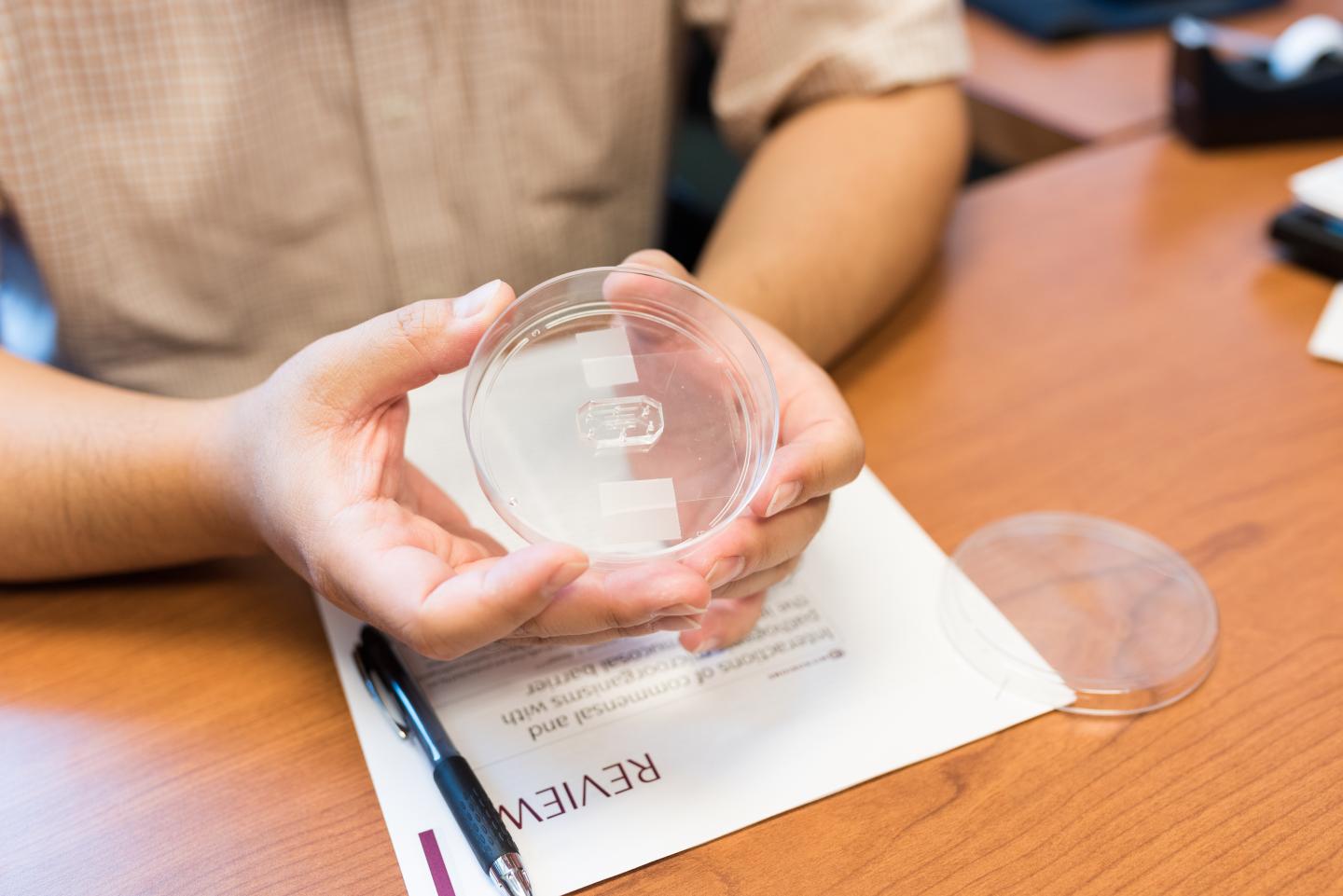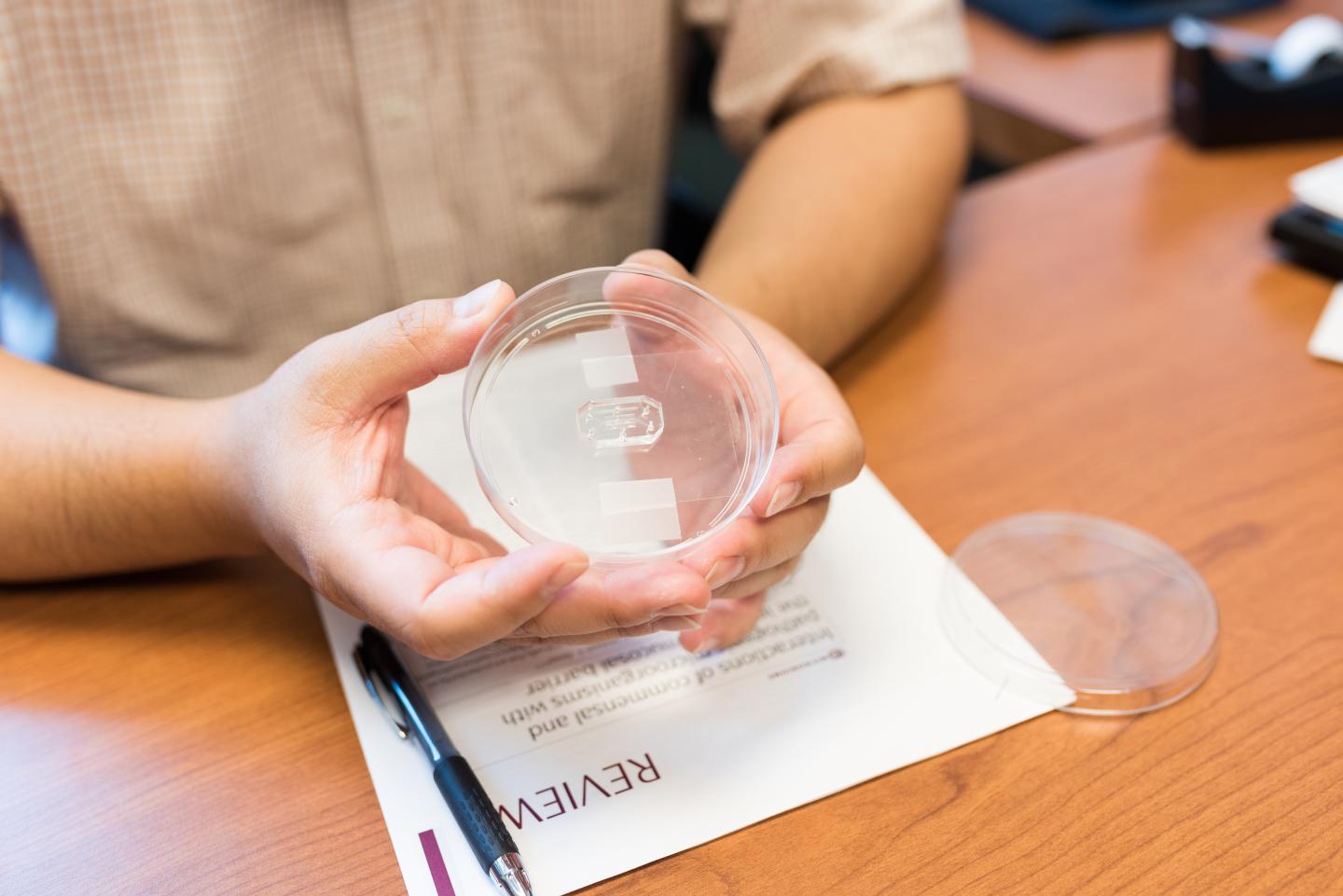
Credit: Cockrell School of Engineering, The University of Texas at Austin
The first study investigating the mechanism of how a disease develops using human organ-on-a-chip technology has been successfully completed by engineers at The University of Texas at Austin.
Researchers from the Cockrell School of Engineering were able to shed light on a part of the human body – the digestive system — where many questions remain unanswered. Using their "gut inflammation-on-a-chip" microphysiological system, the research team confirmed that intestinal barrier disruption is the onset initiator of gut inflammation.
The study also includes evidence that casts doubt on the conventional wisdom of taking probiotics – live bacteria that are considered good for gut health and found in supplements and foods such as yogurt – on a regular basis. According to the findings, the benefits of probiotics depend on the vitality of one's intestinal epithelium, or the gut barrier, a delicate single-cell layer that protects the rest of the body from other potentially harmful bacteria found in the human gut.
"By making it possible to customize specific conditions in the gut, we could establish the original catalyst, or onset initiator, for the disease," said Hyun Jung Kim, assistant professor in the department of biomedical engineering who led the study. "If we can determine the root cause, we can more accurately determine the most appropriate treatment."
The findings are published this week in Proceedings of the National Academy of Sciences.
Until now, organs-on-chips, which are microchips lined by living human cells to model various organs from the heart and lungs to the kidneys and bone marrow, solely served as accurate models of organ functionality in a controlled environment. This is the first time that a diseased organ-on-a-chip has been developed and used to show how a disease develops in the human body — in this case, the researchers examined gut inflammation.
"Once the gut barrier has been damaged, probiotics can be harmful just like any other bacteria that escapes into the human body through a damaged intestinal barrier," said Woojung Shin, a biomedical engineering Ph.D. candidate who worked with Kim on the study. "When the gut barrier is healthy, probiotics are beneficial. When it is compromised, however, they can cause more harm than good. Essentially, 'good fences make good neighbors.' "
Shin plans to develop more customized human intestinal disease models such as for inflammatory bowel disease or colorectal cancer in order to identify how the gut microbiome controls inflammation, cancer metastasis and the efficacy of cancer immunotherapy.
Kim is a leading researcher in the development of human organs-on-chips. He developed the first human gut-on-a-chip in 2012 at Harvard University's Wyss Institute for Biologically Inspired Engineering.
###
This research was supported in part by the Alternatives in Scientific Research of The International Foundation for Ethical Research Graduate Fellowship and the National Research Foundation of Korea.
Media Contact
John Holden
[email protected]
@UTAustin
http://www.utexas.edu





